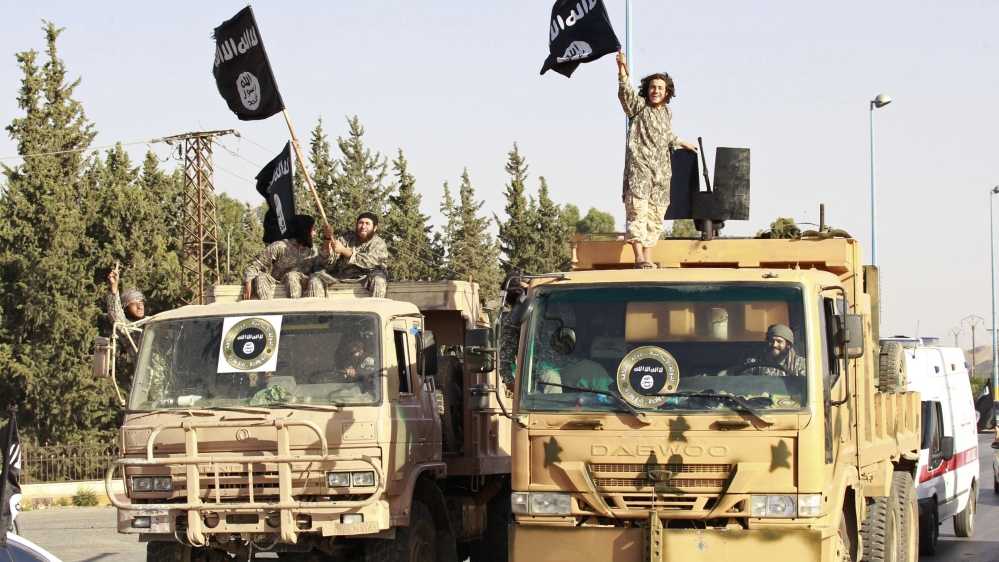
Growing anti-Shia terrorist attacks by Islamic State Khorasan (ISIS-K) have left Pakistan literally clueless on how to handle the situation which, the international community is quick to point, is mostly its own doing by trying to develop relations with terror groups antagonistic to one another as a matter of policy.
The killing of over 60 people in a suicide bomber attack at the Koocha Risaldar Mosque in Peshawar on March 4 is the worst in recent times. The Islamic State’s regional affiliate, ISIS-K, took responsibility, according to a translation of an ISIS statement by the SITE Intelligence Group. The statement said the bombing was carried out by an Afghan suicide bomber.
The Islamic State is a Sunni Muslim terrorist group. It considers Shias heretics and has claimed several previous attacks in Pakistan but the mosque bombing is the biggest and deadliest yet.
The Pakistani government has launched a high-level probe and subse4quently claimed it has discovered the network and the family members of the suicide bombers responsible for the “dastardly” attack in the sensitive Khyber Pakhtunkhwa province.
A suicide bomber belonging to ISIS-K blew himself up inside the mosque in Qissa Khwani bazaar in Peshawar, capital of the province that borders Afghanistan and is a victim of free movement of terror fighters between both countries.
The attack has shaken both the political establishment of Pakistan and its army controllers.
The last major terrorist attack was also carried out in Peshawar, in a mosque in Dir Colony on Oct 27, 2020, killing eight students and injuring around 120 injured as a timed device went off on the premises, where a large number of seminarians were attending a class.
The border town of Peshawar has borne the brunt of terror attacks from various groups. In 2014, Taliban terrorists killed over 140 people at the local Army Public School and Degree College here. Before the ISIS-K came into the picture, the bulk of the violence was perpetrated by the Taliban.
In the last one month, Pakistan has been an “unprecedented rise in attacks and arrests of its Shia population, who make up between 15% and 20% of the Sunni-majority country, the largest Shia community outside Iran”, according to media reports.
Many Shia families and prominent people among them have gone into hiding after they were named as targets for assassination on the charge of blasphemy. Blasphemy is a capital offence in Pakistan and even unsubstantiated allegations can lead to mob violence and lynchings against the accused.
The Pakistani police have anyway launched a religious crusade of sorts against Shia Muslims. Only last week, in Punjab, “police beat up and arrested 22 Shia Muslims, including seven women, who were taking part in a ceremony to mark a Shia martyr”. And now, the IS terrorists have joined the fight against them.
The anti-Shia Muslim campaign first began gathering pace on social media last September, demanding that Shia Muslims were declared heretics. The hashtag “infidel, infidel, Shias are infidel” began trending. The same month, Sunni Muslims took out a massive procession in Karachi caling for the beheading of the “heretic” Shias.
The media reports explained: “At the forefront of anti-Shia campaign in Pakistan are two hardline Sunni Muslim groups, Ahl-e-Sunnat-Wal-Jamaat (ASWJ) and Tehreek-e-Labbaik Pakistan (TLP). ASWJ had previously been banned in Pakistan under the Anti-Terrorism Act before it was lifted in 2018 but is still globally considered a terrorist organisation. Sectarian persecution of Shia Muslims has been a long-running fracture in Pakistan, exacerbated by the proxy wars fought on Pakistan soil by Sunni-majority Saudi Arabia and Shia-majority Iran, as well as the US’ ‘war on terror’.”
Pakistan, caught between the Taliban and the ISIS-K, ended up giving concessions to local extremist Sunni Muslim groups. It no longer has the United States in the vicinity that it could boast of to ward off the terror groups.
What has complicated the situation for Pakistan is the more than keen interest being shown by Iran, a Shia-majority country.
Iran has not only condemned the attacks in severe terms, it has also asked the Pakistan government to take measures to protect the lives of Shias in the country in the future. Iran and ISIS-K are enemies. The terrorist group initially expanded rapidly in Iraq and became a strong presence in the region bordering western Iraq. With Islamist Sunni Jihadist groups concentrating in eastern Iran, the country found its hands full handing terror from both sides. Since 2014, Iran has launched several operations to arrest ISIS-K leaders and members of the Muslim clergy affiliated with the terror group.
As the situation worsened, the ISIS-K carried out its first attack on Iranian soil in June 2017 when it claimed responsibility for an attack on the Iranian Parliament and the mausoleum of Ayatollah Khomeini, killing 16 people.
The Taliban has added another complication for Pakistan. After assuming power in Afghanistan, the Taliban have launched an operation to wipe out ISIS=K from the country. That has forced the fighters of the terror group to cross the border into Pakistan to take shelter. That is largely how they end up in Peshawar where they are now carrying attacks against Shias.
Media reports I have said ISIS-K has reiterated its “uncompromising” goal to “destroy” Pakistan. According to the reports, Nazifullah, an ISIS-K member, has blamed Pakistan for all that is going on in Afghanistan and for making it difficult for the terror group to establish its presence in the latter country by turning the Taliban into its enemy.
The member was quoted by the media as saying: “Our first target is to destroy Pakistan because the main reason for everything in Afghanistan is Pakistan. When the Taliban were here (even as the previous government still reigned), they said that we controlled 80 per cent of the country, but they were not implementing Islamic rulings. That’s why we stood up and started (ISIS-K) over here in this area.”








